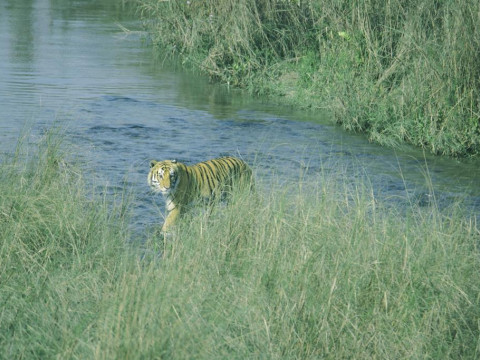Overview
The Sudurpaschhim Province, that includes Terai Arc Landscape, Kailash Sacred Landscape, and three protected areas, is both source and transit for transnational wildlife trade, favoured by the porous border with India and China. The province harbours populations of high-value wildlife such as tiger, rhino, musk deer, pangolins and common leopard that are targeted by wildlife criminals. Wildlife crime data from the province show local people are used by criminal networks to poach and smuggle wildlife. Majority of these people are from marginalised ethnic and underprivileged communities and they do it for income. They are also unaware about the legal punishment they face when they get arrested. The involvement of women is also significant. Northern parts of the province are especially prone to illegal wildlife trade (IWT) due to the remoteness. Human-wildlife conflict is also high and there are evidences showing wildlife killed in retaliations are also illegally traded. If communities at risk of being involved in wildlife crime can be diverted to other livelihood means and they can be educated on poaching and IWT issues, the loss of important biodiversity can be minimized. With this purpose, this project aims to address the root causes while also strengthening the enforcement side of the issue.
Project objectives
- Support poaching and IWT involved communities to adopt alternative livelihood
- Increase wildlife law enforcement capacity in Sudurpaschhim province
- Increase awareness level of local communities on poaching and IWT
Expected outputs
- 420 households acquire new livelihood skills and access livelihood finance to adopt alternative livelihood
- 200 HWC affected households minimize livestock loss form improved livestock sheds
- 225 law enforcement staff are better skilled on crime scene procedures
- Increase in wildlife crime control coordination among the province WCCB, district WCCBs and transboundary authorities
- 4,500 people have increased knowledge and awareness on poaching and IWT issues
- 30 youths are developed as local change agents
Project outcome
Increased income from alternative livelihood combined with increased poaching/IWT awareness yields substantial reduction in the involvement of target communities in poaching and IWT => Position of Sudurpaschim province as source and transit for IWT will reduce =>=> Sustainable wildlife conservation in the far-western landscape of Nepal.
Project partners
Shuklaphanta National Park, Khaptad National Park, Api-Nampa Conservation Area, Ministry of Industry, Tourism, Forests and Environment (MoITFE), Sudurpaschhim Province Community Development Center
Project duration: August 2024 to January 2027
Budget: £ 689,680 (£524,560 IWTCF; £165,120 NTNC)
Principal Investigator (PI): Dr. Naresh Subedi, Member Secretary, NTNC
Co-PI: Laxmi Raj Joshi, Senior Conservation Officer, Shuklaphanta Conservation Program, NTNC
Contact: nareshsubedi@gmail.com, Phone: +977-9855056934; laxmi.ntnc@gmail.com, Phone: +977-9849181858
The project is supported by the Illegal Wildlife Trade Challenge Fund (IWTCF), funded by Defra, UK Government.











